Rivers have been very useful to men in all parts of the world since prehistoric times. They provide a source of drinking water, for obtaining food, to fertilize lands and way to transport goods from place to place. Rivers also provide an important habitat for wildlife. They play anessential role in the ecology of rainforest and wetlands. A list of the most important rivers in the world.
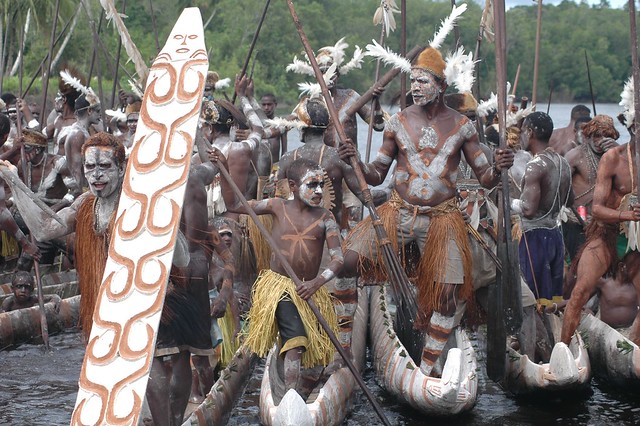 flickr/David_Chinoy
flickr/David_Chinoy
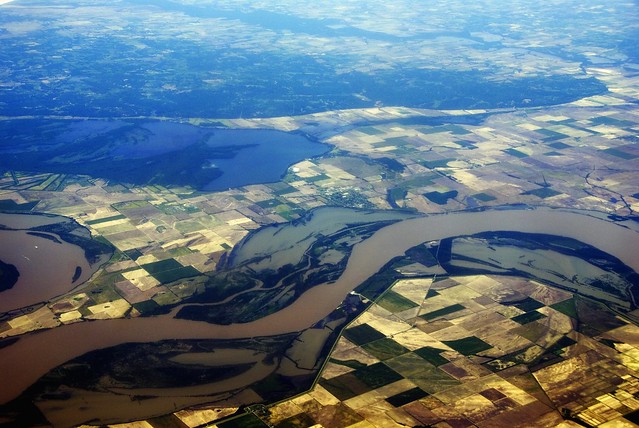 flickr/Katy Silberger
flickr/Katy Silberger
 flickr/Ilya Schurov
flickr/Ilya Schurov
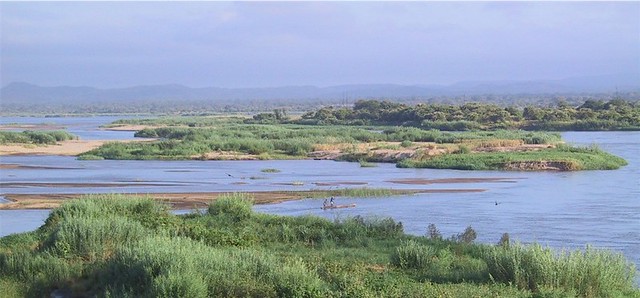 flickr/International Rivers
flickr/International Rivers
 flickr/Jody Art
flickr/Jody Art
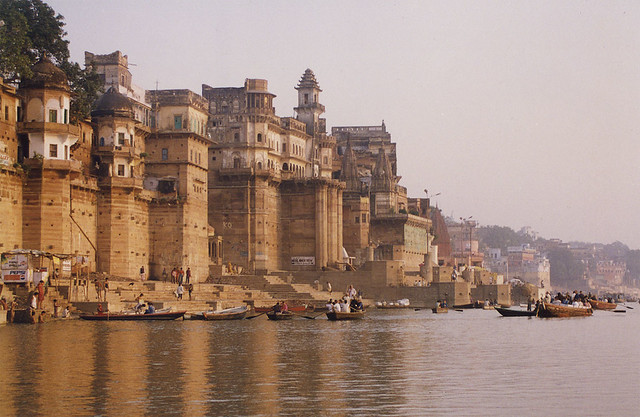 flickr/Dey
flickr/Dey
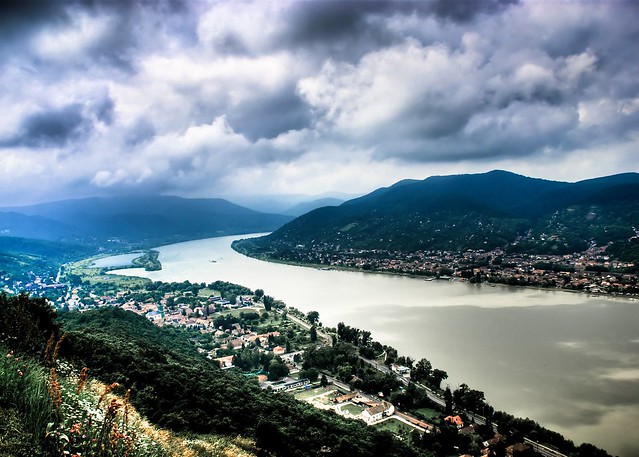 flickr/Csizmadia Tamás
flickr/Csizmadia Tamás
 flickr/Yang and Yun's Album
flickr/Yang and Yun's Album
 flickr/Michael Gwyther-Jones
flickr/Michael Gwyther-Jones
 flickr/leoffreitas
flickr/leoffreitas
10 Most Important Rivers in the World
Rivers have been very useful to men in all parts of the world since prehistoric times. They provide a source of drinking water, for obtaining food, to fertilize lands and way to transport goods from place to place. Rivers also provide an important habitat for wildlife. They play anessential role in the ecology of rainforest and wetlands. A list of the most important rivers in the world.
10Sepik River
 flickr/David_Chinoy
flickr/David_Chinoy
The Sepik River is the longest river on the island of New Guinea. The river originates in the Victor Emanuel Range in the central highlands of Papua New Guinea. For most of the Sepik’s length the river winds in serpentine fashion, like the Amazon River, to the Bismarck Sea. Unlike many other large rivers, the Sepik has no delta whatsoever, but flows straight into the sea. The river’s total length is 1,126 kilometers (700 miles). There are no settlements of great size along the Sepik River. The isolation of the river’s small tribal groups has given rise to one of the most original and extensive artistic traditions. It is one of the last remaining undisturbed environments in the world.
9Mississippi River
 flickr/Katy Silberger
flickr/Katy Silberger
About 2,320 miles (3,730 km) long, the Mississippi River is the largest river system in the United States and North America. The river originates at Lake Itasca, and empties below New Orleans in the Gulf of Mexico. Along with its major tributary, the Missouri River, the river drains all or parts of 31 U.S. states.
The famous Steamboats entered trade in the 1820s. Cotton, timber and food were transported down the river. After the arrival of the railroads in the 1880s steamboat traffic diminished although they remained a feature until the 1920s. A few steamboats, such as the Delta Queen, have e survived as icons.
The famous Steamboats entered trade in the 1820s. Cotton, timber and food were transported down the river. After the arrival of the railroads in the 1880s steamboat traffic diminished although they remained a feature until the 1920s. A few steamboats, such as the Delta Queen, have e survived as icons.
8Volga River
 flickr/Ilya Schurov
flickr/Ilya Schurov
The Volga is the longest river in Europe and one of Russia’s most important rivers. Out of the 20 largest cities of Russia, 11, including its capital Moscow, are situated in the Volga’s drainage basin. It originates at an elevation of only 225 meter (740 feet) in the Valday Hills northwest of Moscow and discharges 3,645 km further (2,266 miles) into the Caspian Sea. The Volga is of great importance to inland shipping and transport in Russia even though the river freezes for most of its length for three months each year.
7Zambezi
 flickr/International Rivers
flickr/International Rivers
The 3,540 km- (2,200 mile-) long Zambezi river is the fourth-longest river in Africa. The river rises in a black wetland in north-western Zambia and flows through Angola, along the borders of Namibia, Botswana, Zambia again, and Zimbabwe, to Mozambique, where it empties into the Indian Ocean. The Zambezi’s most spectacular feature is the beautiful Victoria Falls.
The river supports large populations of many animals. Hippopotamuses are abundant along most of the calm stretches of the river, and many crocodiles are also present. The Zambezi also supports several hundred species of fish including large species. The bull shark for example has been found far inland. It is an aggressive shark which has been responsible for several attacks on humans.
6Mekong River
 flickr/Jody Art
flickr/Jody Art
The Mekong river is the 12th longest river in the world with an estimated length of 4,350 km (2,703 miles),. From the Tibetan Plateau this river runs through China’s Yunnan province, Burma, Laos, Thailand, Cambodia and Vietnam. The river is difficult to navigate due to the extreme seasonal variations in flow and the presence of rapids and waterfalls. The Mekong basin is one of the richest areas of biodiversity in the world which is only surpassed by the Amazon. Since the building of the first Chinese dam however, many species have become endangered including the Mekong dolphin and manatee.
5Ganges
 flickr/Dey
flickr/Dey
The 2,510 km (1,560 miles) Ganges originates in the western Himalayas in India, and drains into the Sunderbans delta in the Bay of Bengal. It has long been considered a holy river by Hindus and worshiped as the goddess Ganga in Hinduism. It has also been important historically: many former provincial or imperial capitals have been located on its banks.
Situated on the banks of Ganges, Varanasi is considered by some to be the holiest city in Hinduism. Hindus scatter ashes of loved ones in the river and some believe life is incomplete without taking a bath in the Ganges at least once. Because the Ganges is such an important river it has been declared India’s National River.
4Danube
 flickr/Csizmadia Tamás
flickr/Csizmadia Tamás
The Danube is one of the most important rivers in Europe and the continent’s second longest river after the Volga. The river was one of the long standing frontiers of the Roman Empire and today forms a part of the borders of 10 European countries. It originates in the Black Forest in Germany and flows eastwards for a distance of some 2850 km (1771 miles), passing through 4 capitals, before emptying into the Black Sea. Since the completion of the German Rhine–Main–Danube Canal in 1992, the river has been part of a trans-European waterway from the black sea all the way to Rotterdam on the North Sea.
3Yangtze River
 flickr/Yang and Yun's Album
flickr/Yang and Yun's Album
One of the most important rivers in the world, the Yangtze River is the longest river in China, and the third-longest in the world. The river is about 6300 km long (3915 miles) and originates in a glacier lying on the eastern part of the Tibetan plateau. It passes through the spectacular Yangtze Gorges, which are noted for their natural beauty, and flows into the East China Sea. One of the dams on the river, the Three Gorges Dam, is the largest hydro-electric power station in the world.
The river is one of the world’s busiest waterways. Traffic includes commercial traffic transporting bulk goods such as coal as well as manufactured goods and passengers. River cruises several days long, especially through the beautiful and scenic Three Gorges area, are also popular.
2Nile
 flickr/Michael Gwyther-Jones
flickr/Michael Gwyther-Jones
The Nile is the longest river in the world, stretching north for 6,650 km (4,132 miles) from East Africa to the Mediterranean. The Nile has two major tributaries, the White Nile and Blue Nile. The White Nile rises in the Great Lakes region of central Africa while the Blue Nile starts at Lake Tana in Ethiopia.
The river provided a crucial role in the development of the Egyptian civilization. Silt deposits from the Nile makes the surrounding land extremely fertile because the river overflows its banks annually and the Egyptians were able to cultivate wheat and other crops. The Nile was also an important part of the ancient Egyptian spiritual life. The god named Hapy was the deification of the annual floods, and both he and the pharaoh were thought to control the flooding of the Nile.
1Amazon River
 flickr/leoffreitas
flickr/leoffreitas
At approximately 6,400 km (4,000 miles) the Amazon River is the second longest river in the world, just slightly shorter than the Nile although reputable sources disagree as to the exact length of the two rivers. What is certain is that the Amazon is the largest river in the world by volume, with a total river flow that accounts for approximately one-fifth of the world’s total. The Amazon and its tributaries flow through Peru, Bolivia, Venezuela, Colombia, Ecuador, and Brazil before emptying into the Atlantic Ocean.
The Amazon has over 3,000 recognized species of fish and new species are still being discovered. Along with the Orinoco River, it is one of the main habitats of the Amazon River Dolphin, the largest species of river dolphin, which can grow to lengths of up to 2.6 meters (8.5 feet). The bull shark has been reported 4,000 km (2,500 mi) up the Amazon River at Iquitos in Peru. Another dangerous fish in the Amazon is the notorious piranha which congregates in large schools, though only a few species are known to attack humans
No comments:
Post a Comment